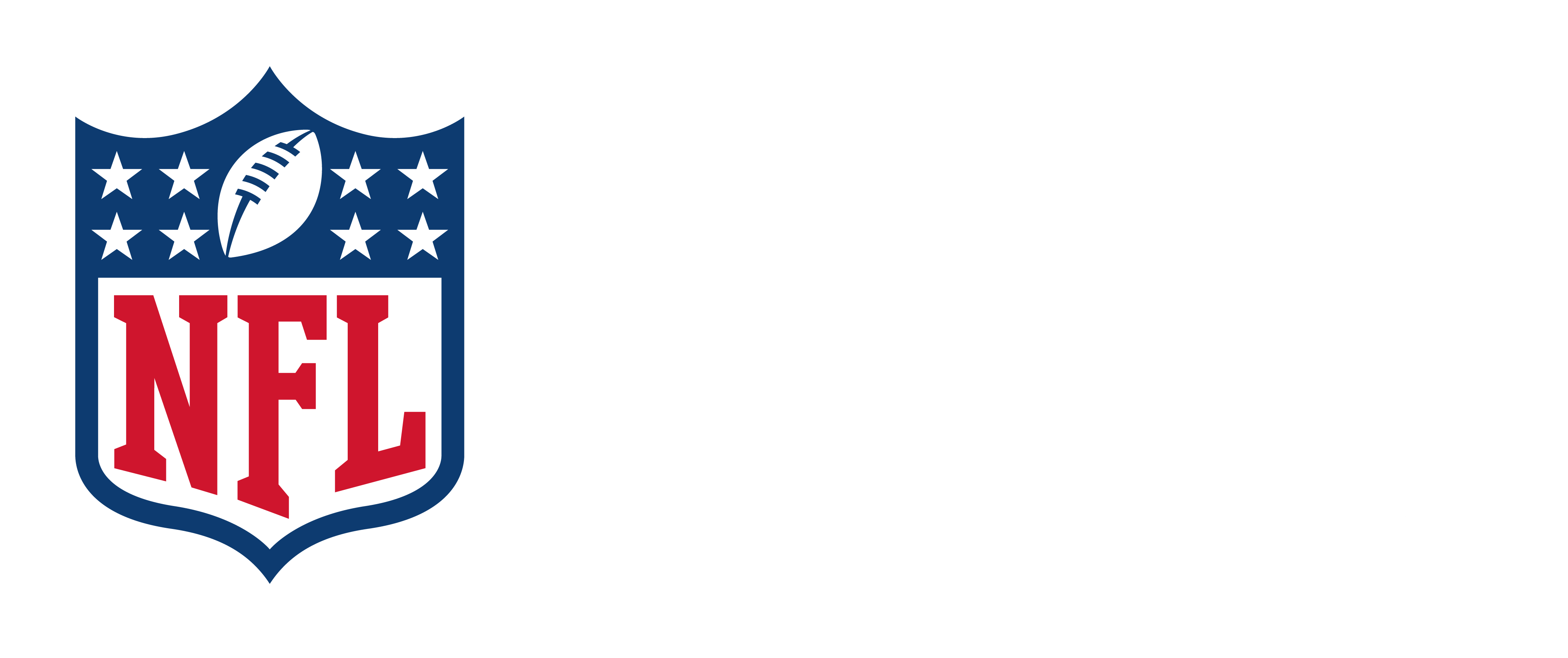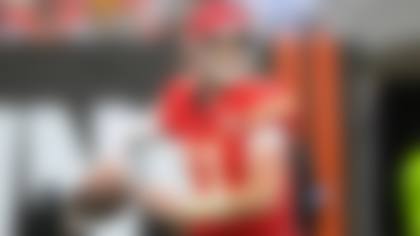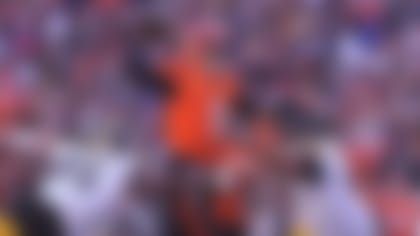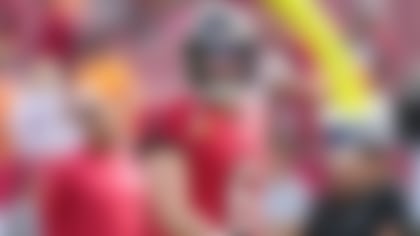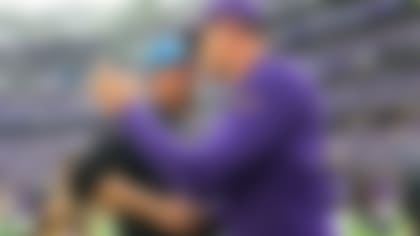The moments still come for Shaquille Leonard, one only a few weeks ago, when he was listening to music while cleaning up around the house, and a song he knew his brother loved came on. His brother and best friend, Keivonte, has been gone for more than eight years now, dead following a fight at a club when Keivonte was home for the holidays from his freshman year in college.
The brothers were only a year apart, and Leonard was shattered. The brothers, two of nine children, had slept in the same bed growing up and were extremely close. But they'd had a minor quarrel before Keivonte went out that night.
"That's what had been eating me alive," Leonard said. "I stopped eating. I lost so much weight. I wasn't happy. I wasn't the full energetic guy I would always be. I would have anxiety attacks. I couldn't sleep. There's no way I'm 19, 20 years old feeling this way, no way I should be getting EKGs every month. No way I should be seeing a heart specialist. That's when it really hit me that I need help. If I don't find help, there is only one other way this could possibly go."
Leonard reached that juncture three years after Keivonte died, and Leonard's agony was exacerbated by distance -- Keivonte died when Leonard was a high school senior, and Leonard had since left to play football at South Carolina State, several hours away from his home in Lake View, South Carolina.
The people he was closest to weren't nearby, in some cases weren't even aware the baby boy of the family was struggling. He saw a therapist at school, but that didn't help much. Not because the therapist was bad, Leonard says, but because he still wasn't letting his feelings go. The brothers had talked about playing football, and now Keivonte wasn't there to see Leonard live out that dream -- that was a thought that kept running through Leonard's mind when he was at school, that still comes to him sometimes, like when the All-Pro Colts linebacker was spending part of an offseason day straightening up after his own family.
"Me breaking down, showing my emotions, that's helping me out rather than keeping my emotions inside," Leonard said in a recent interview. "That's better than keeping it inside."
Leonard finally recognized that years after Keivonte died, after talking to his future wife, Kayla, and friends who had also lost loved ones. He finally opened up to his surprised family. He had been trying to show toughness with them, and that action is part of the message he wants to deliver now.
"It's OK to not be OK," Leonard said. "I knew I needed help, and for a long time, I didn't reach out. Once I did reach out, I knew that's what made it better for me. A lot of people have a stigma, especially as men, that you can't show weakness. I'm letting the world know, as a professional football player, a linebacker, one of the most aggressive positions on the field, there's still no weakness because you're having mental health issues."
Leonard's voice is one of the most prominent in the Indianapolis Colts' and the Irsay family's new sweeping mental health initiative, Kicking the Stigma, designed to raise awareness about mental health disorders and remove the shame often connected to them, and to raise and distribute funds to help expand treatment services. The Kicking the Stigma initiative will officially launch in May -- Mental Health Awareness Month -- with a week of events, including the release on May 3 of a nearly hour-long virtual roundtable of ߣĎČÉúAV players, including Leonard, Hayden Hurst, Solomon Thomas and Darren Waller, all of whom have revealed their own mental health issues and, in Waller's case, substance use. The forum, hosted by Carson Daly of NBC's The Today Show and The Voice -- who has publicly discussed his own anxiety disorder -- taped earlier this week. In it, Daly and the players candidly and matter-of-factly recount their own struggles and breakthroughs, and the importance of reaching out for help.
"We want to normalize the mental health conversation, educate, and support individuals who might be struggling with a mental health illness or disorder, but are hesitant to seek help," Daly said.
"It's OK to not be OK. I knew I needed help, and for a long time, I didn't reach out. Once I did reach out, I knew that's what made it better for me." Colts LB Darius Leonard
The Colts, through the website , will also host a week of programming -- yoga and meditation, an anti-bullying segment, a virtual fundraiser and an online auction that will include experiences and memorabilia from, among others, Peyton Manning and Tony Dungy. There will be story sharing by players and celebrities and, on May 4, a chance for members of the public to share their own stories.
The idea for the program came more than a year ago -- pre-pandemic -- when Carlie Irsay-Gordon, a vice chair and owner of the Colts and the oldest of Jim Irsay's three daughters, was talking to her younger sister, Kalen Jackson, a vice chair and owner of the team, about selecting one initiative to focus the family's charitable efforts on. The Colts and the Irsays had long been involved in a number of community programs, but a program focused on mental health felt right because of the family's own, sometimes very public, experiences. Only as they began to put together their plans did they realize how desperate the need for help was and how many people had stories like their own.
Jackson does not look back at a particular moment in her childhood that led to the start of her anxiety, which included crippling anxiety around public speaking. She was, she remembers, a very sensitive kid who felt her feelings strongly. Her parents were both deeply spiritual and encouraged their children to be open about how they were feeling, as long as they weren't mean to other people while doing it. She began therapy when she was 9 years old and points to her father's decades-long struggle with alcohol and substance use before his recovery in recent years as a factor in her anxiety.
"A lot of it definitely had to do with that, in terms of my anxiety," Jackson said. "Like a lot of mental illnesses, it's complicated. They may have spurred from one thing, but as you get older, they grow. For me, it was definitely due to my experiences around that. It made me who I am. Of course, I would never wish those experiences on someone or choose to have some of the experiences that were difficult for me and my family, but they have truly made me who I am. They've made me a stronger, more confident person by going through those experiences, and navigating that part of my mental health."
Jackson knows her situation was unique, and in some ways, she was lucky. Her family was open to conversations about mental health, and they had the resources to get help. But like Leonard, the Irsay family is also a reminder that wealth and success do not offer insulation from mental health and substance-use challenges.

Irsay was suspended for six games and fined $500,000 in 2014 following an arrest and guilty plea to a misdemeanor charge of driving while intoxicated. Irsay admitted to a judge at the time that he was under the influence of painkillers, medication he had begun taking to manage pain from knee and hip injuries and surgeries. Particularly for an ߣĎČÉúAV owner, Irsay has been candid about his own experiences and the history of trauma and addiction in his family.
"You kind of feel like you need help, but you're saying, 'I'll get help later,' and, 'It's not that bad,' " Irsay said in an interview last weekend. "Early on, I kind of abstained in the '90s for a year or two here and there. Seven out of 10 years."
That kind of denial is something the Kicking the Stigma initiative can address. Irsay thinks of a parent who doesn't even want to say during a dinner with friends that a child is suffering from depression or has an eating disorder, because the stigma is so powerful, both for those suffering, who must first reach out for help, and for those who can help them.
For Irsay, there was denial and relapse and the pain medication. Much of Irsay's struggle was out of view until the toll became obvious enough that even people who were only occasionally around the Colts became concerned about Irsay's health. The arrest was a headline-making rock bottom.
"When I was growing up, my sister died in a car crash when I was 11, my brother was severely mentally handicapped from birth and didn't live a full life," Irsay said. "My kids witnessed being around Tommy when he was still alive. My grandfather died of alcoholism, my mom's dad -- a poor Polish tailor who came over through Ellis Island, and he had no solution. He drank himself to death. My mom was only 6 years old. My dad (former Colts owner Robert Irsay) painfully succumbed to alcoholism at 73, or he probably would have lived to 100. Obviously, I've been open about what I've gone through. I have just been in recovery for a while now, and it's something that changes your life. When you overcome a fatal disease, it really puts it in perspective, just how important it is to live your life to being of service."
Because Irsay's illness has sometimes played out in the public eye, he and his family have seen up close how people respond to addiction and mental illness, how the stigma they are now trying to defeat attaches itself to people who are struggling. The language used to talk about mental health is often subtly -- and not so subtly -- judgmental. Leonard notices it when the media and fans frown upon Kyrie Irving taking time away from the NBA to work on his mental health. Jackson points to the harsh comments about her father on social media and says they make her wonder if the commenters might be dealing with issues in their own lives, if the comments are part of them processing their own experiences.
"When Chuck Pagano (who served as Colts head coach from 2012 to '17) got well from leukemia, it was very heroic, as it should be," Irsay said. "But with mental illnesses, people say things like, 'At least they toughened up; they had the character to beat this.' As if it has to do with toughness and character. It's so absurd and so misunderstood. We've got to quit stigmatizing. We have to find a way to stop badgering and torturing and chasing down people like they are criminals. It's so horrendous. It's no wonder a lot of people die."
Stephanie Berry, Indiana University Health director of behavioral health, has advised the Colts on mental health initiatives since 2019. Early last year, Irsay donated $1 million to IU Health to support addiction treatment, part of more than $3 million in donations the family has made in the last year to expand mental health services throughout Indiana.
A year of pandemic-induced isolation has only made the need more acute. One in five adults in the United States -- one in four in the state of Indiana -- suffers from some kind of mental health disorder like depression, anxiety and addiction, according to stats cited by the Kicking the Stigma campaign. Suicide is the second leading cause of death among people ages 10 to 34.
In her job, Berry hears countless stories of the reaction to mental health issues and how people struggle to get help, of primary care physicians who are reluctant to take patients who are also in addiction recovery, of pharmacists who treat patients disrespectfully if they have a prescription for a medication that treats opioid disorder.
One story that stands out is from a colleague who told her her mother died by suicide. She had lived in a small town, and when she drove by the clinic where she had intended to go to receive mental health services, she could see the cars in the parking lot. She didn't want to go, because she didn't want her neighbors to be able to see she was getting help.
Berry is hopeful that the high profile of the Colts talking openly and consistently about mental health will normalize the conversation, particularly for men.
"So we talk about it like a broken arm, a cold, because unfortunately mental health and substance-use disorder are still kind of taboo," Berry said. "I think the whole culture is part of the problem, to be very honest. It's so important for us to point that out and call it out. To sit on the sidelines when somebody is being persecuted -- we need to change the conversation. I call that bullying, honestly."
In 2018, Irsay bought the original manuscript of Alcoholics Anonymous, called The Big Book. It was first published in 1939, and Irsay bought it to preserve it and to loan it to museums and organizations that work on addiction issues. He embraced his daughters' idea to spotlight mental health for the family's giving.
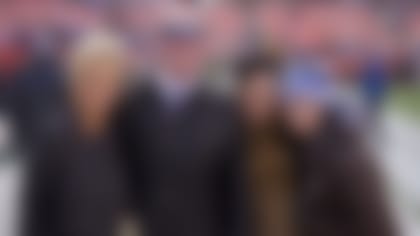
"No one wants to be hugging the keg when the party is over," he said. "The party ended a long time ago for a lot of us. We all engage in altering our consciousness with alcohol or drugs to make things better. It's in pursuit of feeling better. In the end, it's not meant to ride that train for too long, or else it's very likely to be destructive. In this country, we now have the ability to have great professionals, but we've got to get people to them, and we can't make it unaffordable, and we can't put a stigma on it."
Jackson is encouraged that the time might be right for change, especially because after the last difficult year, so many people are experiencing mental health issues for the first time. Federal health researchers at the National Center for Health Statistics announced recently that the number of Americans seeking mental health treatment increased during the pandemic, with 24.8 percent of adults saying they were receiving treatment in February. The number of respondents to the poll who said they needed counseling but where not receiving it also increased, to 11.7 percent of adults.
When the Colts released a 60-second public service announcement to introduce Kicking the Stigma last December, featuring Leonard and Irsay, to coincide with the ߣĎČÉúAV's My Cause My Cleats initiative, it was broadcast nationally and produced $17,000 in donations -- even though the spot didn't ask for donations.
The spot showcased shoes that highlighted post-partum depression, an area around which Jackson hopes to develop more specific initiatives. But Jackson was also struck by how much that initial piece resonated. About half of the donations came from outside Indiana. There was a section where contributors could add a note, and in that space, people wrote their own stories of family members lost and struggles of their own. Jackson has read every one of them -- she wants those people to know they are not alone.
Leonard said he was recently approached by a father who thanked him for appearing in the public service announcement because when his son, who had been facing mental health problems, saw Leonard talking about the topic, he felt comfortable saying he had problems, too
"The awareness is so critical," Irsay said. "We've got to reach that person who is sitting in their basement, and the commercial comes on, and maybe they think, 'I'll give it one last whirl.' "
Follow on Twitter.
